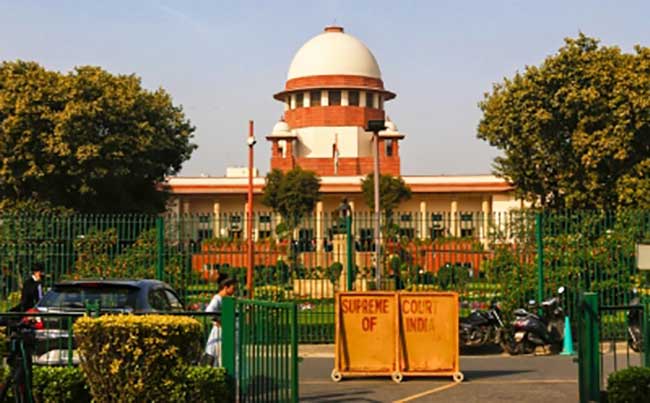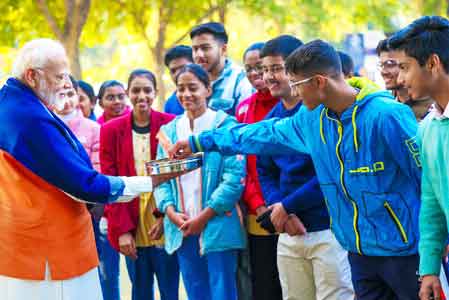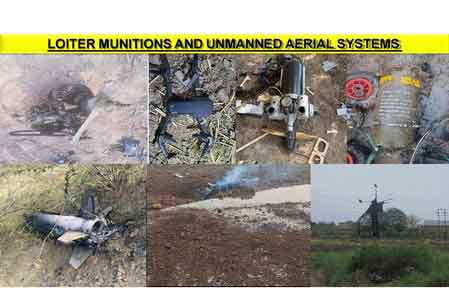Senior advocate Kapil Sibal on Thursday argued before a Constitution Bench of the Supreme Court that a "Legislative Assembly" cannot be substituted in place of a "Constituent Assembly" in respect of Article 370 of the Constitution.
He argued that there exists a difference between "constituent power" and "legislative power" and a Legislative Assembly cannot be converted into a Constituent Assembly.
"Luckily, we have no Maharaja exercising his power. We have a Parliament," he said.
At this, CJI D.Y. Chandrachud remarked: "Even when the Parliament amends the Constitution, it's not exercising the power of Constituent Assembly. It may be exercising a constituent power - the power to amend. Because it (power to amend) is a power which is restricted, you are subservient to the Constitution. Therefore, you are bound by the provisions of the Constitution, by virtue of which the power to amend the Constitution is circumscribed."
Sibal cautioned that "constituent power" and "power to amend" should not be equated.
"Otherwise, see the danger of this argument. Tomorrow, the Parliament says that we are the Constituent Assembly. They can do away with basic structure," he argued.
Justice B.R. Gavai, who was also part of the bench, said: "Dr Ambedkar, while presenting the final draft (of the Constitution) on 25 Nov 1949 also spoke about this aspect."
"The point I am making is a more fundamental point which impacts the future of our country. If in principle, say, Parliament can convert itself into a Constituent Assembly, then where do we go from there? Forget about this case, I'm worried about our future."
Sibal argued that Parliament can never be equated with a "Constituent Assembly" because the latter is formed as a result of a "political process". "You can't convert legislative assembly into that (political) process. Parliament when amending (exercising power to amend the Constitution) has to function within the Constitution of India," he continued, saying that doing so will be "worrisome".
He referred to the marginal note to Article 370 which reads as “temporary provisions with respect to the State of Jammu and Kashmir” and said that “marginal note plays a very minimal part in construction of a legal provision” while referring to various past judgments of the Supreme Court.
Sibal summarised the abrogation of Article 370 to the Constitution Bench. "They converted 'Legislative Assembly' into 'Constituent Assembly". Dissolved. They (Union government) said that now because of Article 356 (President's Rule), the Parliament is exercising that power. Therefore, the Parliament is the (state) Legislature. Because it (state Legislature) is a Constituent Assembly, Parliament of India is the constituent assembly," he said.
Sibal said that the procedure adopted to abrogate Article 370 is completely "unknown to law". "Instead of clapping by two hands, they clapped with one hand," he argued.
The bench then raised a question that at the time of enactment of the Constitution, there was no Legislative Assembly for the state of J&K and queried if for the purpose of interpretation of proviso to clause 3 of Article 370, can the term "Constituent Assembly" include "Legislative Assembly".
At this, Sibal said: "How can Milords interpret a term in the Constitution, which says Constituent Assembly as Legislative Assembly. Under what interpretation can you do that? There is no implied or expressed power. The Constituent Assembly has nothing to do with the (state) legislature."
On Wednesday, Sibal submitted that integration of Jammu & Kashmir in India "is unquestionable, was unquestionable and will always remain unquestionable".
A 5-judge Constitution Bench of the Supreme Court headed by Chief Justice of India Chandrachud resumed hearing for the second day on the clutch of petitions challenging the 2019 Presidential Order taking away the special status accorded to the erstwhile state of Jammu and Kashmir and its bifurcation into two Union Territories.
The Constitution Bench, also comprising of Justices Sanjay Kishan Kaul, Sanjiv Khanna, Gavai, and Surya Kant, is hearuing the matter consecutively starting from August 2, except for Mondays and Fridays.
Senior advocates Sibal, Gopal Subramanium, Rajeev Dhavan, Dushyant Dave, among others will advance arguments on behalf of the petitioners and intervenors in the case. A large number of petitions have been filed by political parties, private individuals, lawyers, activists etc., challenging the Jammu and Kashmir Reorganisation Act, 2019, which downgraded and split Jammu and Kashmir into two Union Territories - Jammu and Kashmir, and Ladakh.
Earlier, another Constitution Bench ruled against the necessity of referring the matter to a seven-judge bench.
In a fresh affidavit before the top court, the Central government had defended the revocation of the special status of Jammu and Kashmir saying that its decision to dilute Article 370 has brought unprecedented development, progress, security, and stability in the region. The Union Home Ministry said that the street violence, engineered and orchestrated by terrorists and secessionist networks, has now become a thing of the past and and the "organised stone pelting incidences connected with terrorism-separatist agenda, which were as high as 1,767 in 2018 has come down to zero in 2023 till date".
The Centre stressed that it has adopted a policy of zero tolerance against terrorism and after constitutional changes, the security situation in Jammu and Kashmir has improved significantly. In the pending matter, intervention applications have also been filed by Kashmiri Pandits supporting Centre’s move stripping special status accorded to the erstwhile state of J&K.






PM Modi congratulates CBSE students, says 'one exam can never define you'
Prime Minister Narendra Modi on Tuesday congratulated lakhs of students across India who appeared for the Class 10 and 12 Board examinations, as the Central Board of Secondary Education (CBSE) announced the results.
Defence Minister Rajnath Singh reviews security with top officials, chiefs of forces
A day after Prime Minister Narendra Modi outlined the new normal in the country’s tough anti-terror policy, Defence Minister Rajnath Singh on Tuesday reviewed the security situation with top officials and chiefs of forces.
CBSE Class 10 results declared; girls outperformed boys once again
The Central Board of Secondary Education (CBSE) announced the Class 10 Board exam results for 2025 on Tuesday. This year, an impressive 93.66 per cent of students passed the examination. Over 23 lakh students appeared for the exam, which was held at 7,837 centres across 26,675 affiliated schools.
Chinese missile maker's stock tanks over 6 pc after India destroys its air weapon
The shares of Zhuzhou Hongda Electronics Corp Ltd, the Chinese defence company that manufactures the PL-15 missile, dropped sharply by 6.42 per cent or 2.56 Yuan to 37.33 Yuan on Tuesday, after India's air defence system successfully intercepted and destroyed the missile during the conflict with Pakistan.
Three terrorists killed in J&K gunfight
Three terrorists were killed on Tuesday in a gunfight with the joint forces in Keller area of Jammu and Kashmir's Shopian district. V. K. Birdi, IGP (Kashmir), told reporters that three terrorists have been killed.
CBSE announces Class 12 result; pass percentage 88.39 per cent
The Central Board of Secondary Education (CBSE) on Tuesday declared the results for the Class 12 examinations, in which girls once again outperformed boys.
India is eternally grateful to armed forces: PM Modi visits Adampur Airbase after 'Operation Sindoor'
Prime Minister Narendra Modi on Tuesday morning visited the Adampur Airbase in Punjab to meet Indian Air Force personnel and express the nation's gratitude for their courage and fearlessness in defending the country.
Devotees throngs Venuban Vihar; meditates and offer prayer to Lord Buddha
Along with the rest of the world, Buddha Purnima was observed here at Agartala with a traditional fervour to mark not only the day when Gautam Buddha was born, but also the day when he attained Nirvana under the Mahabodhi tree at Bodh Gaya.